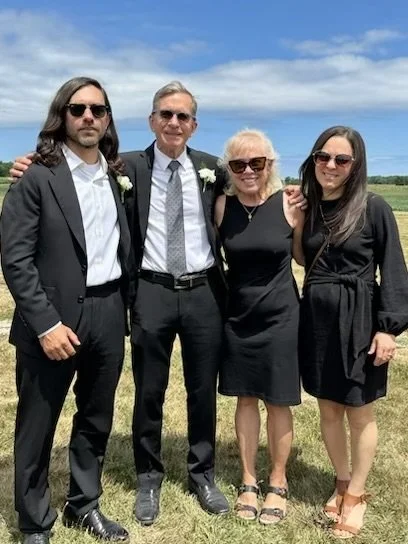A Little Kiss from Jesus
In an earlier article, I described God’s 100% clearcut leading from my job at the Hospital Council of West Michigan to become Executive Vice President at Georgia Hospital Association (GHA). I firmly believe that as we make significant decisions under God’s leadership, we have no choice but to interpret every circumstance – even the awful ones – that results from that decision as part of God’s will. About 18 months into my stint at GHA, I had the chance to see if I truly believed that.
My transition to GHA was very smooth – with one glaring exception. GHA already had a long-tenured Executive Vice President, a very talented and respected woman. When the GHA board decided to create a new EVP position, they wanted to recruit someone from the outside, and I ended up being that someone.
My friends on GHA staff later told me that from the moment the board announced the new EVP position, my colleague was clearly unhappy and they knew that anyone who stepped into that position would be in her crosshairs. Once again, I was that someone.
As I said, she was a gifted, respected leader. There were three types of people in her universe:
Those, both inside and outside GHA, who recognized her talents and creativity and openly praised her
Several people who reported to her and who lived in great fear because, underneath her Southern charm, she had a reputation for retribution against anyone who didn’t do exactly as she said
·Those within the organization – like me – who did not report to her and often had to protect our turf against her tendency to seek control of areas not directly under her
I tried to do my job while maintaining the peace, but since I had little experience navigating treacherous political waters, I made a few missteps. About 18 months after I arrived, things came to a head when the president hauled the two of us along with the HR VP into a hotel conference room for an all-day pow wow. He made it clear that the tension had better stop or someone wouldn’t be around too long. The clear implication was that, as the newbie, I would be the someone out the door.
In a previous post, I described the most difficult period of my life as I experienced a serious mismatch in my job which resulted in my overwhelming sense of failure. During that time, God used a little-known Promise Keepers song called “I Will Be With You” to sustain me. The chorus repeats the line “I will be with you” about a dozen times and promises that God will be with us until the end because that’s who he is. I must have listened to that song hundreds of times during that dark period.
One morning not long after the troubling meeting with the GHA president, I ended up leaving for work about ten minutes earlier that normal. When the car radio came on, incredibly the song “I Will Be With You” was playing. Mind you, this was a little-known song that almost no one ever heard of. Furthermore, this was the only time I ever heard it on the radio – either before or after that day. And the only reason I heard it at all is that I inexplicably left for work ten minutes early. I nearly teared up over this “coincidence.”
I call things like this “a little kiss from Jesus” – just a reminder that he hasn’t abandoned me and is always there.
My colleague and I reached an uneasy truce, but I always had to watch my back. We continued to work together for a total of 18 years until she retired. After she left, I hoped that a couple of years down the road, we would able to meet for lunch to try to repair our relationship. Unfortunately, that never happened.
About two years after she retired, she died unexpectedly. I thank God that my immediate reaction on hearing this was, rather than any sense of gladness, one of sadness. I take no credit for the fact that there was not even a tinge of happiness that she had passed. That was strictly God’s grace working in my heart.
There were two reasons I was sad. First, it’s always sad when someone dies. And secondly, I regretted that our reconciliation meeting would never happen. But since, as far as I know, she knew Jesus, we will have that opportunity in heaven.
I tell this story as a testimony of God’s kindness to me in a rough time by reminding me in a highly unusual way he is truly with me. He also graciously brought me to the point of regretting I couldn’t make peace with someone who had caused me untold grief over many years.
+++++++++++++++
Have you ever had a similar experience where God unmistakably did something to encourage you when you were seriously troubled? How did that make you feel?
How do you react when you learn that someone who has been the source of significant distress has suffered some kind of serious setback?
“I will never leave you or abandon you” – Hebrews 13:5 (CSB)
























